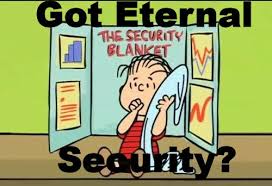- Feb 5, 2002
- 166,520
- 56,190
- Country
- United States
- Faith
- Catholic
- Marital Status
- Married
- Politics
- US-Others
Today is the Feast Day of Father Abraham. Most Catholics do not know that many of the heroes of the Old Testament are regarded as saints!
“The patriarchs, prophets, and certain other Old Testament figures have been and always will be honored as saints in all the Church’s liturgical traditions.” (paragraph 61)
In honor of this feast day I am posting this article on Abraham, a critique I made of a book falsely claiming Abraham was saved by “faith alone.”
Was Abraham saved by Faith Alone? By Steve Ray

You say, “Of course Abraham was saved by faith alone! Doesn’t the Bible make that perfectly clear, especially in Paul’s letters? And didn’t Luther’s German translation inform the masses that the words “faith” and “alone” belonged together like bread and butter? Abraham was saved by faith alone!”
Well, maybe he was and maybe he wasn’t, but the Bible certainly throws some question on this well-known Protestant cliché. Let’s find out how and when Abraham was really “saved.”
Fundamentalist Protestants like to tell us that we are saved at “one-point-in-time when we “simply believe.” In other words mental assent to the simple gospel gives us a free passage to heaven.

Since Abraham is used in the New Testament as the quintessential example of justification by faith, let’s see if we can pin-point the moment when Abraham believed? Can we locate the exact moment he was “saved”? Since this was such a momentous occasion in the history of mankind, and in the drama of salvation history, it should be clearly shown when Abraham actually believed and was reckoned as righteous. From unbelief to belief, from no faith to saving faith.
Protestants (e.g., John Ankerberg in Protestants and Catholics, Do They Now Agree? [Eugene, OR: Harvest House Publ., 1995) like to say the word “justify” as used by James really means “vindicate,” and that “vindicate” has nothing to do with salvation, but has to do with the proving of the believer’s faith—Abraham’s faith. You really should have addressed the major weakness of this perspective: it is not the faith that is being justified by works—it is the man.

How can we justify this? If our theory holds true shouldn’t we read, “Was not Abraham our father’s faith justified (vindicated) by works?” making it clear that it is his faith, and not his person. Instead we read, unfortunately, “Was not Abraham our father justified by works?” This observation does not set well with our interpretation.
In your book you say that it is always the faith that is proven by works, whereas the Apostle James seems to say it is the person. We should try to figure out how James could have worded this passage more carefully so Catholics don’t get the wrong idea and misunderstand the gospel. You also say in your book (p. 37) that “Paul is writing about a person being justified before God, while James is writing about a man being justified before men. Men cannot see another person’s heart as God can.”
Continued below.
Was Abraham Saved by Faith Alone? Are the Protestants Right? – Defenders of the Catholic Faith
“The patriarchs, prophets, and certain other Old Testament figures have been and always will be honored as saints in all the Church’s liturgical traditions.” (paragraph 61)
In honor of this feast day I am posting this article on Abraham, a critique I made of a book falsely claiming Abraham was saved by “faith alone.”
Was Abraham saved by Faith Alone? By Steve Ray

You say, “Of course Abraham was saved by faith alone! Doesn’t the Bible make that perfectly clear, especially in Paul’s letters? And didn’t Luther’s German translation inform the masses that the words “faith” and “alone” belonged together like bread and butter? Abraham was saved by faith alone!”
Well, maybe he was and maybe he wasn’t, but the Bible certainly throws some question on this well-known Protestant cliché. Let’s find out how and when Abraham was really “saved.”
Fundamentalist Protestants like to tell us that we are saved at “one-point-in-time when we “simply believe.” In other words mental assent to the simple gospel gives us a free passage to heaven.

Since Abraham is used in the New Testament as the quintessential example of justification by faith, let’s see if we can pin-point the moment when Abraham believed? Can we locate the exact moment he was “saved”? Since this was such a momentous occasion in the history of mankind, and in the drama of salvation history, it should be clearly shown when Abraham actually believed and was reckoned as righteous. From unbelief to belief, from no faith to saving faith.
Protestants (e.g., John Ankerberg in Protestants and Catholics, Do They Now Agree? [Eugene, OR: Harvest House Publ., 1995) like to say the word “justify” as used by James really means “vindicate,” and that “vindicate” has nothing to do with salvation, but has to do with the proving of the believer’s faith—Abraham’s faith. You really should have addressed the major weakness of this perspective: it is not the faith that is being justified by works—it is the man.

How can we justify this? If our theory holds true shouldn’t we read, “Was not Abraham our father’s faith justified (vindicated) by works?” making it clear that it is his faith, and not his person. Instead we read, unfortunately, “Was not Abraham our father justified by works?” This observation does not set well with our interpretation.
In your book you say that it is always the faith that is proven by works, whereas the Apostle James seems to say it is the person. We should try to figure out how James could have worded this passage more carefully so Catholics don’t get the wrong idea and misunderstand the gospel. You also say in your book (p. 37) that “Paul is writing about a person being justified before God, while James is writing about a man being justified before men. Men cannot see another person’s heart as God can.”
Continued below.
Was Abraham Saved by Faith Alone? Are the Protestants Right? – Defenders of the Catholic Faith
